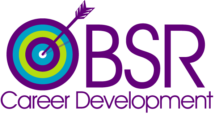There are as many ways to develop a career as there are people.
According to the US Bureau of Labor Statistics, the average worker currently holds ten different jobs before age forty, and will have 5-7 careers in their lifetime.
Whether you’re a long-term planner or more of a ‘live in the moment’ person, this should inform your personal plan for ongoing employability. Even for those of us who prefer to commit to roles long-term need to be prepared for the fact that change is happening all around us, and we need to future-proof ourselves.
There are 3 different types of development pathways to choose from.
- Be great at what you do. Are you happy doing what you do, and don’t plan on ‘climbing the corporate ladder’ or changing careers if you can possibly prevent it? You still need to engage in continuous development! Your aim should be to keep current within your role and industry. This might mean upskilling with new technologies as they emerge, fine tuning your people or technical skills over time, keeping an eye on emerging qualifications for the role that you do and/or building your network.
- Develop ‘across’. Sometimes, the job we’re in isn’t our end game, and other types of roles might be more attractive. Rule #1 for developing into differing roles is to ensure that you’re giving your best in the role that you’re in first. That way, if you’d like to ask your employer for their support in moving laterally, they will be more likely to consider your request. Even if development support from your employer isn’t forthcoming, you will need a good reference form them, and that is much more likely if you’re performing well. Developing into new areas can be exciting, and planning should start early to allow you to be in a state of readiness once it is practical to pivot to your next career avenue of interest. Look for what qualifications, skills and knowledge relevant job ads stipulate in your field of interest, and decide on the rate at which you would like to prepare.
- Up, Up, Up. I prefer to think of career development as a web, rather than a ladder, but the fact remains that some roles are more senior than others. If your aspirations include achieving career growth through upward promotion, then a plan to position yourself well for the future begins now. Consider minimum educational requirements, specific certifications or qualifications early to allow time to chip away at them. Equally important can be letting the right people know of your ambitions and seeking their support. Mentorships, coaching, secondments, acting-up opportunities and networking can all be key, in addition to putting in your best effort in your primary role.
Whatever your ambition, don’t wait to develop. Make an annual plan, and don’t let a year go by without taking action to support your ongoing employability in roles of your choice.
